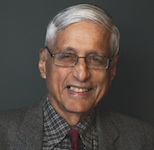'Flags of our fathers': new article in Indian Express
The tank-on-the-JNU-campus story sent my mind back to one of independent India’s ablest ministers, Babu Jagjivan Ram, who held the defence portfolio during the December 1971 war with Pakistan, and whose daughter Meira Kumar recently contested for India’s presidency.
Starting as the youngest member of the Nehru-led interim government, which was in charge at Independence-eve (1946-47), Babuji, as everyone called Jagjivan Ram, remained an influential cabinet minister thereafter for three continuous decades. Early in 1977, many will remember, he dramatically resigned from Indira Gandhi’s cabinet and made a decisive contribution to her electoral defeat. Moreover, well before quitting he had given clear indications to persons he trusted of his unhappiness with the 1975-77 Emergency.
Which is why my mind goes back to Babuji. For I am curious. Are some leaders in the NDA establishment confiding to trusted friends their unease about today’s troubling situation, of which the tank-on-the-JNU-campus story is the latest and perhaps starkest symbol? I hope they are. In fact, I wanted to believe that Prime Minister Narendra Modi himself would publicly censure the JNU vice-chancellor and the two ministers, who spoke with him at the tank-on-the-campus rally, for their inappropriate remarks. On the contrary, he seems to endorse the remarks.
Should we be awaiting calls for jackboots on campuses, and for tanks to march over campuses?
Speaking at the JNU event, Minister for Petroleum and Natural Gas Dharmendra Pradhan evidently said that the university’s administration had created history by organising a “tiranga march”, setting up a wall of heroes and raising slogans of Bharat Mata ki jai and Vande Mataram.
The history the future is likely to record, however, is of bids to steamroll JNU students and faculty into patriotic smoothness. That in any case is the story the world is hearing today.
As for the tiranga of massive length that was part of the rally, let it be remembered that for years the RSS disapproved of the tricolour. It disliked the national flag because its three colours were historically connected to India’s different faith communities. Our national flag was a celebration of India’s diversity and remains that, even if lately it has been wielded as a weapon for enforcing patriotism. The preferred standard for the RSS has always been the bhagwa.
Commending JNU for holding the rally, another speaker proclaimed in an immortal remark: “We will create a situation where people will love the nation. And if they don’t, we will force them to love it.” Comment, as they say, is superfluous. But I should refer to something else related to regimenting education: A fresh demand from an RSS affiliate that Urdu words should be removed from Hindi textbooks. If this demand were to be implemented, “Jai Hind” should become “Vijay Bharat”, “Azad Hind Fauj” would require a “purer” version, and the INA’s motto, “Ittehad, Itmad and Qurbani” (Unity, Faith and Sacrifice), should be obliterated from history books.
If current trends are any guide, we should expect such changes and more in our schools and colleges. For RSS functionaries are increasingly influential in most of our state governments, which control school textbooks, and in our universities.
The personal commitment of RSS members is one thing. Impositions on the population are another. The latter can only invite resentment, whether they relate to language, or to accounts of what happened in the past, or to what should be taught in schools and what should be banned from campuses, or to slogans, food or culture.
Another speaker at the JNU rally rejoiced, referring to the venue, that a citadel of “the enemy” had been conquered, and warned of attacks on other citadels. These “conquests” may well take place and may even last a while. It is not easy for those targeted for conquest to resist inflamed crowds when the police are unable or unwilling to protect them.
Going by the history of our world, under certain circumstances conquests can last a long while. In several cases, women, children, old men, and whole castes, races and nations have remained for years at the mercy of oppressors. In obedience to gun-backed orders, knees have stayed bent.
But prostration is not love, and a conquest is justifiable only when it liberates people and is welcomed by the free voice of the liberated, by world opinion and by posterity. Jawaharlal Nehru was loved by the people of India and respected in the world because he valued every person’s freedom. More than 60 years after his death, Babasaheb Ambedkar is venerated because he stood for the dignity and freedom of India’s weakest woman, child and man.
Does Modi want the Indian people’s voluntary love and respect? Does he want the world’s approval? The future’s appreciation? Or does he merely want to rule for a long time, allowing persons in his large parivaar and supportive vigilantes to enforce obedience?
But I should return to the question with which I began. If they cannot speak out, are members of our ruling establishment whispering their unease to good friends?
This article first appeared in the Indian Express
